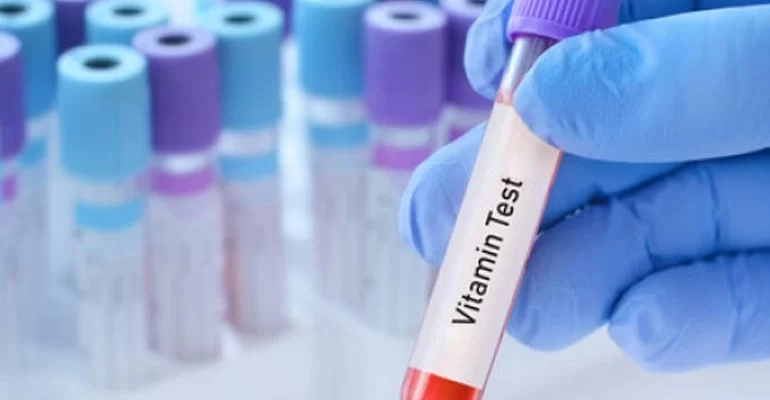VItamin Test
- Vitamin 12
- Vitamin D3
- Vitamin A
- Folic Acid
- Vitamin K
- Vitamin B1 (Thaimine)
- Carotene (Beta Carotene)
- Vitamin B2 (Riboflavin)
- Vitamin B3 (Niacin)
- Vitamin B5 (Pantothenic Acid)
- Vitamin B6
- Vitamin C
- Vitamin E
- Improving patient care by providing better imaging and diagnosis using advanced technology.
Frequently Asked Questions (FAQ's)
What is a Vitamin Test?
The levels of different vitamins in your body can be determined by a blood test called a vitamin test. In addition to identifying vitamin excesses or deficiencies, it aids in evaluating your overall nutritional health.
Why is a Vitamin Test Important?
A vitamin test is essential because vitamins are crucial in maintaining overall health. Deficiencies or excesses of vitamins can lead to various health problems, so it’s necessary to ensure your vitamin levels are within the optimal range.
What Vitamins are Typically Tested in a Vitamin Test?
Vitamins including vitamin D, B12, folate (vitamin B9), vitamin A, vitamin E, and vitamin K can all be measured with a vitamin test.
Who Should Consider Getting a Vitamin Test?
A vitamin test may benefit people at risk of vitamin deficiencies, such as those with certain medical conditions, dietary restrictions, or who are pregnant or breastfeeding. It can also be helpful for those experiencing symptoms of vitamin deficiency.
How is a Vitamin Test Done?
Usually, blood drawn from an arm vein is used to perform a vitamin test. The sample is then examined in a lab to determine the different vitamin levels.
What Can the Results of a Vitamin Test Tell You?
The results of a vitamin test can provide information about your overall nutritional status and help identify any deficiencies or excesses of specific vitamins. This information can be used to guide dietary changes or supplementation if necessary.
How Can I Improve My Vitamin Levels?
In order to assist raise your vitamin levels, your doctor might suggest dietary adjustments, supplements, or other treatments if your vitamin test shows deficits. Taking your medical professional’s advice seriously is crucial for the best
Are There Any Risks Associated with Vitamin Testing?
Testing for vitamins is a low-risk, safe process. Serious problems are unlikely, however some patients may feel mild soreness or bruising at the location of the blood sample extraction.

